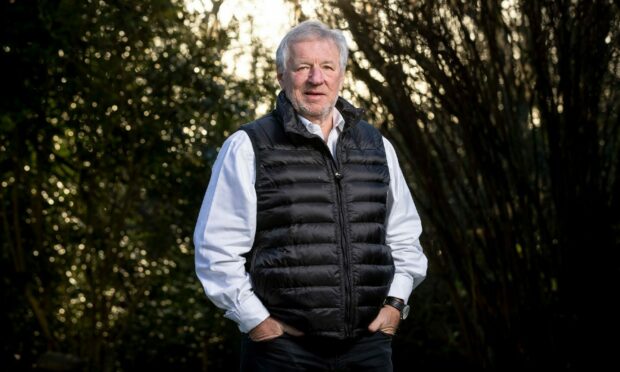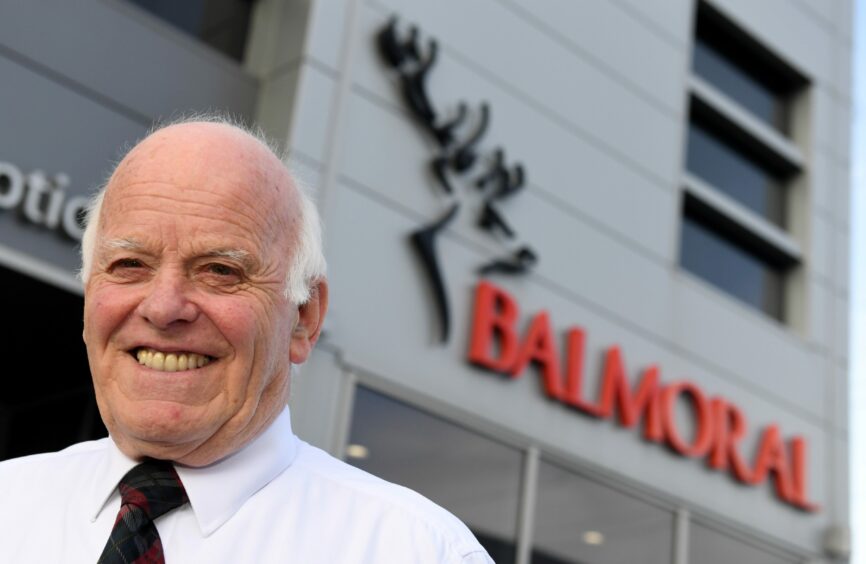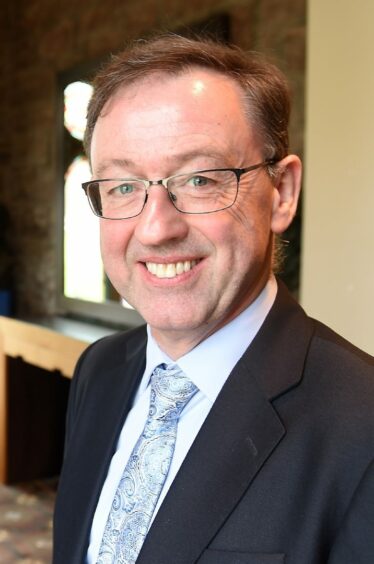Cybersecurity is “understandably on everyone’s watch list”, one of Scotland’s top entrepreneurs said after an influential survey highlighted the issue as the biggest concern facing UK business chiefs.
Martin Gilbert, the co-founder and former chief executive of Aberdeen Asset Management, was speaking after the World Economic Forum (WEF) an international non-governmental and lobbying organisation based in Switzerland – published its 2022 Global Risks Report.
“Fortunately, business and people are mindful of the threats and also there is a growing cybersecurity sector that offers protections. But the risks remain and criminals methods continue to evolve.”
Martin Gilbert.
Globally, research for the report found climate risks dominating the short and long-term concerns of business leaders as the world enters its third year of the Covid-19 pandemic.
Shorter-term global concerns include heightened societal divides, livelihood crises and mental health deterioration, as well as cyber risks.
But UK business leaders listed the failure of cybersecurity measures as their biggest fear.
Mr Gilbert, now chairman of both financial technology firm Revolut and fledgeling asset manager AssetCo, is a regular attender of annual WEF gatherings in Davos, Switzerland.
It’s the unknown risks and left field events that really catch you out.”
The 66-year-old Aberdeen-based businessman said: “The risks identified are all known risks that governments, companies and wider society should to be aware of and need to be addressed.
“It’s the unknown risks and left field events that really catch you out.
“Cybersecurity is, understandably, on everyone’s watch list.
“The last two years has been an inflection point, with governments, companies and individuals focused on securing themselves online.”
‘Not a new phenomenon’
Mr Gilbert added: “Cybercrime is not a new phenomenon as cyber attacks date back to the 1980s.
“But they’ve now escalated to new levels as more and more day-to-day activity, for example work, communication and shopping, is done online.
“Fortunately, business and people are mindful of the threats and also there is a growing cybersecurity sector that offers protections. But the risks remain and criminals methods continue to evolve.”
Another leading Aberdeen businessman, Balmoral Group managing director and chairman Jim Milne, 81, said: “Cybersecurity is a risk we all face, both personally and commercially.
“This is a major issue and everyone has a part to play in keeping their own and their corporate digital space safe.
“It is no longer something that is a ‘nice to have’. It is absolutely imperative that companies have robust cyber risk policies and practices in place as this is an ongoing battle.
“We must work hard to stay ahead of the organised global online crime syndicates to protect and maintain the future of our businesses and everyone associated with them.”
Highland businesses are no less vulnerable, and Stewart Nicol, chief executive of Inverness Chamber of Commerce, said it was cybercrime was a growing menace for firms in the north.
It is just one of many challenges facing firms amid the pandemic but the risk of cyberattacks has increased since the onset of the coronavirus outbreak, Mr Nicol said.
He added: “If you’ve been impacted, it will be up there with responding to Covid because you will have experienced the trauma.
“It is becoming much more of a mainstream threat and is a growing concern for business leaders.
“It is one of a number of significant challenges in today’s world that you just have to learn to manage and take whatever steps you can to mitigate it.”
Debt crises in large economies, prolonged economic stagnation, infectious diseases and extreme weather events were ranked the other top five concerns weighing on the minds of UK leaders in the Global Risks Report, published in partnership with Marsh McLennan, Zurich Insurance Group and SK Group.
Globally, most business leaders believe an economic recovery will be volatile and uneven over the next three years. Just one in 10 of those surveyed expected recovery to accelerate.
WEF managing director Saadia Zahidi said: “Health and economic disruptions are compounding social cleavages.
“This is creating tensions at a time when collaboration within societies and among the international community will be fundamental to ensure a more even and rapid global recovery.”
Meanwhile, new research findings from trade body UK Finance suggests Britain’s small and medium-sized enterprises (SMEs) lost nearly £60m to fraud during the first half of 2021 – a year-on-year increase of 35%,
UK Finance Take Five to Stop Fraud campaign is encouraging SMEs to adopt key “stop, challenge, protect” behaviours to help stop the scammers.
Small Business Commissioner Liz Barclay said: “Data shows scams are on the rise and businesses are having to grapple with the fall out.”




